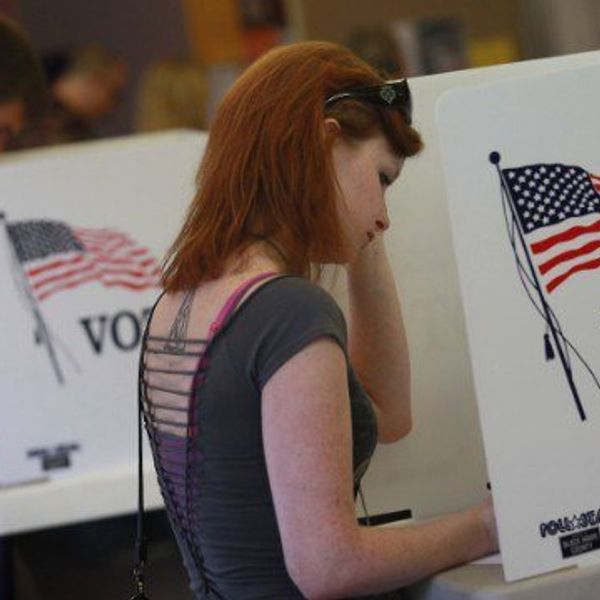We all know that one friend who brings up politics all the time, often to audible sounds of discontent from everyone else. Or when you decide to dip your foot into a political discussion on Facebook:
via">http://giphy.com/gifs/politics-IeNWKIjarkC3u">via GIPHY
It's gotten to the point where no one wants to talk about politics. Why?
Simply put, politics has become an emotionally charged, polarized topic that breaks up more friendships than it creates. Seems pretty counterproductive, considering that the will of the people is what's supposed to drive our democracy.
In person, talking about politics can lead to passionate appeals and defensive feelings, with an aftertaste of animosity. Online, since you don't see the other person's face, name-calling is frequently involved, and this political discussion turns into something much more personal - with a screen in front of them, people sometimes lose the need to treat others like actual people.
In both cases, it can seem like nothing ever gets solved - on the contrary, people's views can get even more polarized.
What's the problem? What can we do about this?
The biggest problem to me is the labels. Democrat, Republican, liberal, conservative, left, right - these labels only make us easier to target by opposing groups, and only encourage division. It's so much simpler to just find the group that thinks like you do. So the Democrats want to do this? Then it must be a good idea. Your conservative governor wants to go forth with this new legislation? Then let's support it.
No party is perfect. Both are, in fact, far from perfect. And very few people actually support every bit of their party's platform, and support different things to different extents. Rather than judging someone by their party or their label, perhaps we should turn our focus to the individual issues.
And what's more, instead of going into a political discussion with our mouths open and our ears closed, it's important that we actually listen and try to understand the opinions of others, without the name-calling and hasty judgments. Both parties have something good to offer, and both parties want the same thing - a better America. They just have different ways of getting there.
The bottom line here is this: nothing is going to get solved if we continue to be like this - if we don't talk about the issues, then we will continue to have a very unproductive government. Obviously, you can't change the way other people are - you can't stop the people online who use the word "libtard" or decide to insult your profile picture instead of contributing to a political discussion. You can't stop people getting enervated and angry when you bring it up in person.
However, you can influence others by your actions. And here's the thing - we need to talk about these issues. Even though politics is a tough topic, it's a necessary one. But instead of using politics as a way to insult or belittle people, instead of thinking that you've got it all figured out with your political affiliation, instead use politics as a way to solve problems. Instead, be educated, do your research, and most importantly, listen. It's can be really easy, in the midst of this passionate topic, to turn to insulting others when they don't understand your incredibly simple ideas, but try to refrain from the name-calling and the hasty judgments. Everybody believes what they do because they think that it's what's best for our country. Everybody's grown up in a different situation, and everybody's been taught different things.
Fight for your beliefs. But also, respect others in your fight. Because if we don't change the way we talk about politics, nothing will get solved. Do your research. Look on both sides of an issue, get your facts straight and free of bias, and, most importantly, treat others with the respect that you'd like to receive in kind.





















